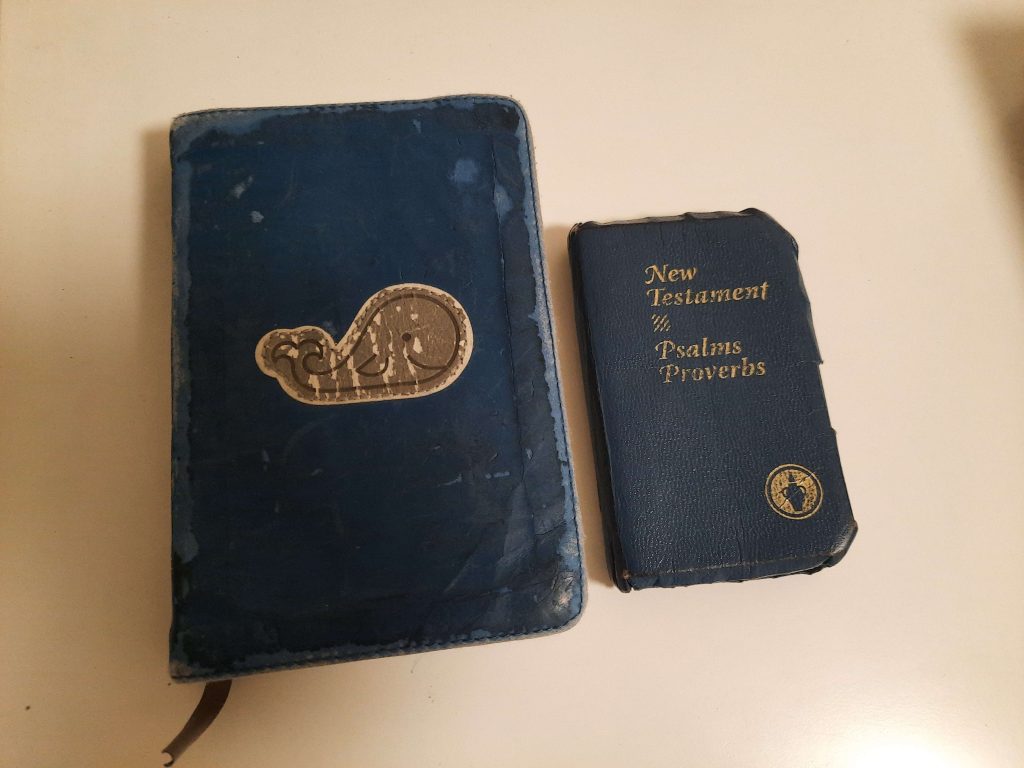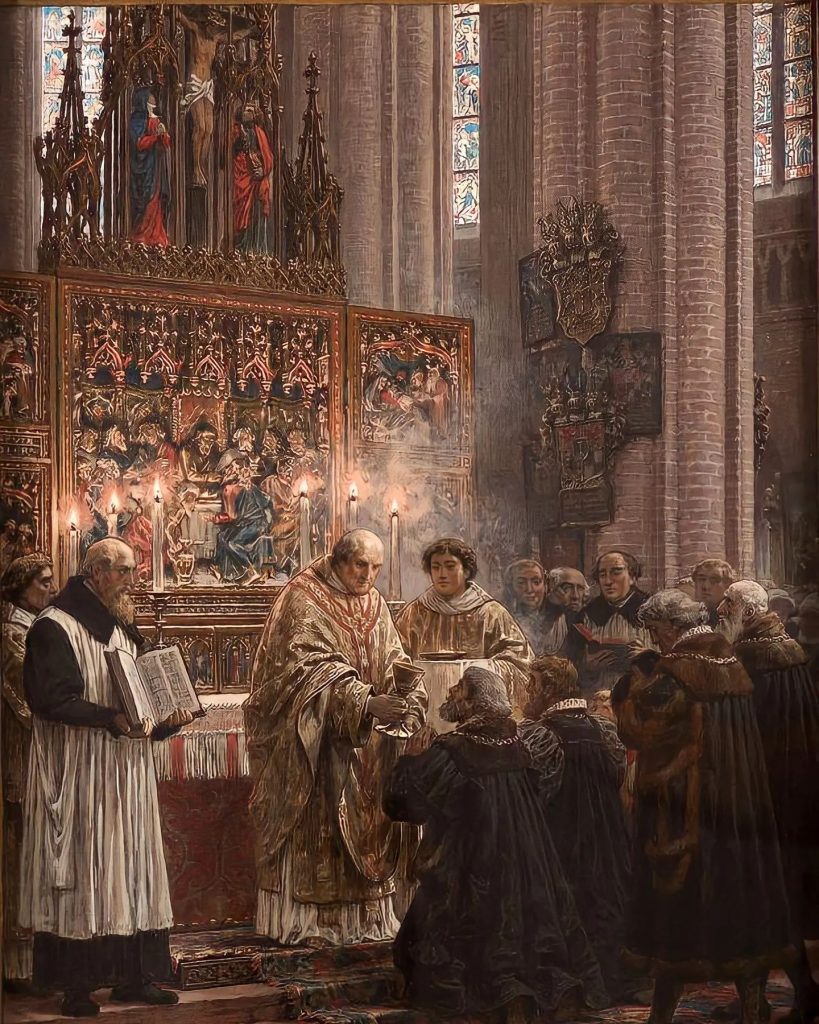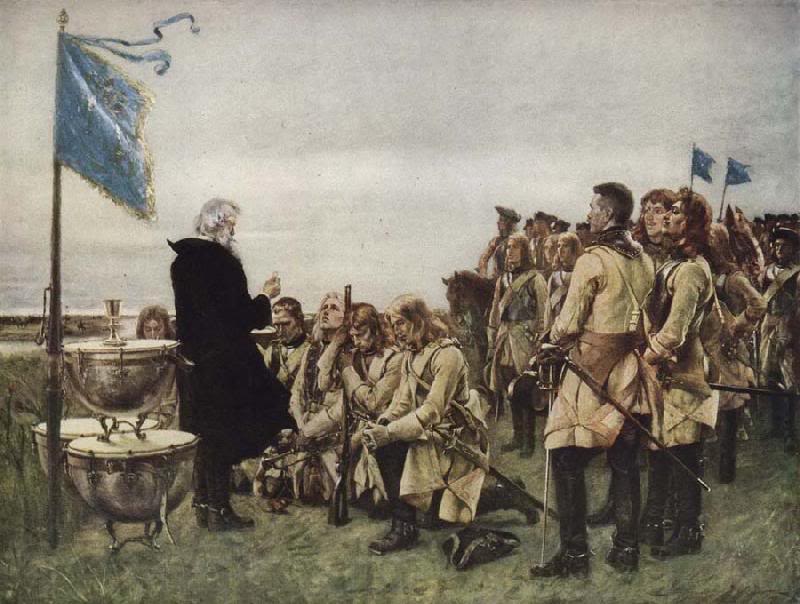I finally reached my Operationally Ready Date (ORD), which marks the end of my full-time National Service.
Before I enlisted, I heard all sorts of stories about National Service, and I would google for tips on how to get through various aspects of it. However, I could not find a lot of meaningful content on keeping the faith while being in there. Since every Singaporean (and second-generation Permanent Resident) male has to go through this, I’m sure many others will have the same questions as I did. Therefore, I thought it would be good for me to write a guide of sorts on how to get through NS as a Christian.
Go in with the right mindset

I remember when I was watching the Ah Boys to Men movie as a 13-year-old, I felt that National Service was a waste of time and resolved to chao keng (malinger) as much as possible when the time would come. When you enlist, you will find that quite a number of people share this mindset, and a lot of the time, they will get away with it, leaving you to wonder if anything you do in the army is even meaningful.
Things are different once you’re entering NS as a Christian. My perspective on National Service shifted together with my worldview.
Render therefore unto Caesar the things which are Caesar’s; and unto God the things that are God’s.
Matthew 22:21
As Christians, we are citizens of two kingdoms; the spiritual, and the earthly. The authority of both kingdoms ultimately comes from God.
The spiritual kingdom refers to the communion of saints, the Church, governed through the ministry of Word and Sacrament for our spiritual well-being.
The earthly kingdom refers to the civil government, which is used by God to maintain order and give us what we need to support this body and life.
We have a duty to be subject to the government God has placed over us, even more so than the unbelievers, that in our obedience we exercise love.
Submit yourselves to every ordinance of man for the Lord’s sake: whether it be to the king, as supreme; Or unto governors, as unto them that are sent by him for the punishment of evildoers, and for the praise of them that do well. For so is the will of God, that with well doing ye may put to silence the ignorance of foolish men:
1 Peter 2:13-15
There will be times when you feel that what you do in the army is not meaningful at all. When these times come, remind yourself that what you are doing in NS as a Christian is pleasing to God, even if it might not seem like it.
Call upon God in every trouble
And call upon me in the day of trouble: I will deliver thee, and thou shalt glorify me.
Psalm 50:15
When God forbids us to take His name in vain in the Second Commandment, it is an invitation to use His name rightly, that is to call upon Him in every trouble, pray, praise, and give thanks.
This applies everywhere really, but when you are in the army, you will find that there are a lot more times when you will be troubled and times that you can be grateful for. In times of trouble, we call upon Him for deliverance. In good times, we praise and thank Him for His gracious providence.
Before I enlisted in the military, my days were monotonous and I had neither good nor bad days. I went about my days without much reflection, nor did I express or experience much emotion. I never really thought much of the relationships I had with people either. Being terminally online does kind of numb your sense of self, and I was just so engrossed in it I didn’t really feel like I was actually living a life, but a spectator in a digital world of narratives and ideologies.
Serving NS as a Christian, I learnt to live again. I’ve become more aware of my relationships with people and my daily interactions with them. I start to feel all sorts of emotions on a daily basis as I become more present and aware of my surroundings.
Experiencing the good and bad in NS, the many things that I’ve learnt and comprehended only intellectually over the years, such as the providence of God, prayer, and the communion of saints became real to me. I had never understood from a rational standpoint why people ask others to pray for them when all believers have direct access to the Father until I actually went through hardship and experienced for myself the assurance and comfort this brings.
On good days, I see the gracious and good hand of our Heavenly Father, who provides us with all that we need for the day.
On bad days I am reminded that we are pilgrims on this earth, awaiting our Lord Jesus Christ to finally deliver us from this vale of tears.
And in all our days here on earth, we have been given the Holy Spirit, who strengthens and keeps us steadfast in His Word and in faith until the end.
Carry a Bible everywhere with you
I don’t mean this in a legalistic sense, that you have to bring a Bible everywhere when you serve NS as a Christian.
Throughout your life in the army, you will often find yourself with periods of waiting and nothing to do. In civilian life, you’d usually just whip out your phone, mindlessly scrolling through social media until your brain turns to mush. You’ll have time to do that too, but there are also times when you can’t, especially during activities in BMT.
During these times, it can be beneficial to pick up a Bible and begin reading. Get yourself a Bible that fits in your pocket so you can bring it around.
For me, I happened to have two, both of them being ESVs. While I personally prefer the KJV/NKJV, these were the only Bibles I had that fit in my pocket. Not ideal, but it works for casual reading.

The Bible on the left is the complete 66-book Protestant canon, which I got at a book fair many years back. The Bible on the right is a Gideons International New Testament that someone out on the streets gave to me, which only has the New Testament, Psalms and Proverbs.
I usually bring the Gideons one everywhere I go because it is smaller and fits nicely in the thigh pocket of the army uniform, but when I want to read the Old Testament books, I bring the bigger one.
Engage those around you
Having a Bible with you at all times can draw the attention of those around you who may be curious about your faith. You will see people from very different backgrounds, and it can make for some very interesting conversations.
These conversations are a lot more civil and enjoyable than online ones, as I had come to realise. My core convictions were challenged time and time again and I had to retrace my steps on how arrived at the things I took for granted. Face-to-face conversations, even with vehement disagreement, tend to be more fulfilling.
Find and befriend other Christians
Serving NS as a Christian can be challenging if you feel like you’re on your own. Some of my Christian friends had to serve without any other fellow Christians in their unit.
I was blessed to have met a handful of Christians throughout my service. While we might not be in the same tradition and disagree on various articles of faith, they made a positive impact on my devotional life in the army. Dialoguing with them spurred me to go deeper into the Scriptures regularly. It has also given me the courage to be more vocal and unapologetic about my faith.
Appreciate the rituals and ceremonies in the army
For those accustomed to the barren dullness of modern life that has done away with rituals, the attention to detail in the symbols, rituals and ceremonies of the regimental life in the army can be a huge culture shock. Most people think they are pointless, outdated, and should be done away with, a sentiment that is shared with many modern Christians regarding the form of worship in the church.
However, the fact of the matter is, rituals have been an intrinsic part of human existence throughout history. From ancient civilizations to contemporary cultures, people have engaged in various forms of rituals to mark important events, rites of passage, and expressions of devotion or reverence. Despite attempts to abolish them in modern times, rituals still exist in our society today, although they are less showy and may not be enjoyed as much as they are endured.
At the end of the day, rituals provide structure, reinforce beliefs, and connect individuals to their shared past and human experience.

If you go to a church that has gotten rid of the rich liturgical traditions of the Christian faith, perhaps the regimental life of the army might give you a glimpse into how structured traditions and symbols can add depth and meaning to common experiences. Liturgical worship is structured with the express goal of teaching the truth of the Christian faith by creating an experience that preaches the story of our salvation with the words of Scripture.
Make good use of regimentation and discipline
Rituals and traditions aside, the consistency and structure of the regimental life will also be beneficial for structuring your prayer life by helping you cultivate beneficial habits. For instance, I would wake up 30 minutes before the reveille time in BMT to read Scripture and pray.
How I structure my prayers really depends on the time I have for the day.
On busy days when I have little time, I simply pray Luther’s morning/evening prayer:
I thank Thee, my Heavenly Father, through Jesus Christ, Thy dear Son, that Thou hast kept me this night from all harm and danger; and I pray Thee that Thou wouldst keep me this day also from sin and every evil, that all my doings and life may please Thee. For into Thy hands I commend myself, my body and soul, and all things. Let Thy holy angel be with me, that the wicked foe may have no power over me. Amen.
Luther’s Morning Prayer
I thank Thee, my Heavenly Father, through Jesus Christ, Thy dear Son, that Thou hast graciously kept me this day; and I pray Thee that Thou wouldst forgive me all my sins where I have done wrong, and graciously keep me this night. For into Thy hands I commend myself, my body and soul, and all things. Let Thy holy angel be with me, that the wicked foe may have no power over me. Amen.
Luther’s Evening Prayer
If I have a little more time, I preface the prayer with the Apostles’ Creed, the Lord’s Prayer, along with my own petitions.
If there is plenty of time to spare, I do a full Divine Office (Matins/Vespers).
Having a set of readings to follow every day will be beneficial. I use the lectionary of The Lutheran Hymnal. You can follow along with the daily readings here.

